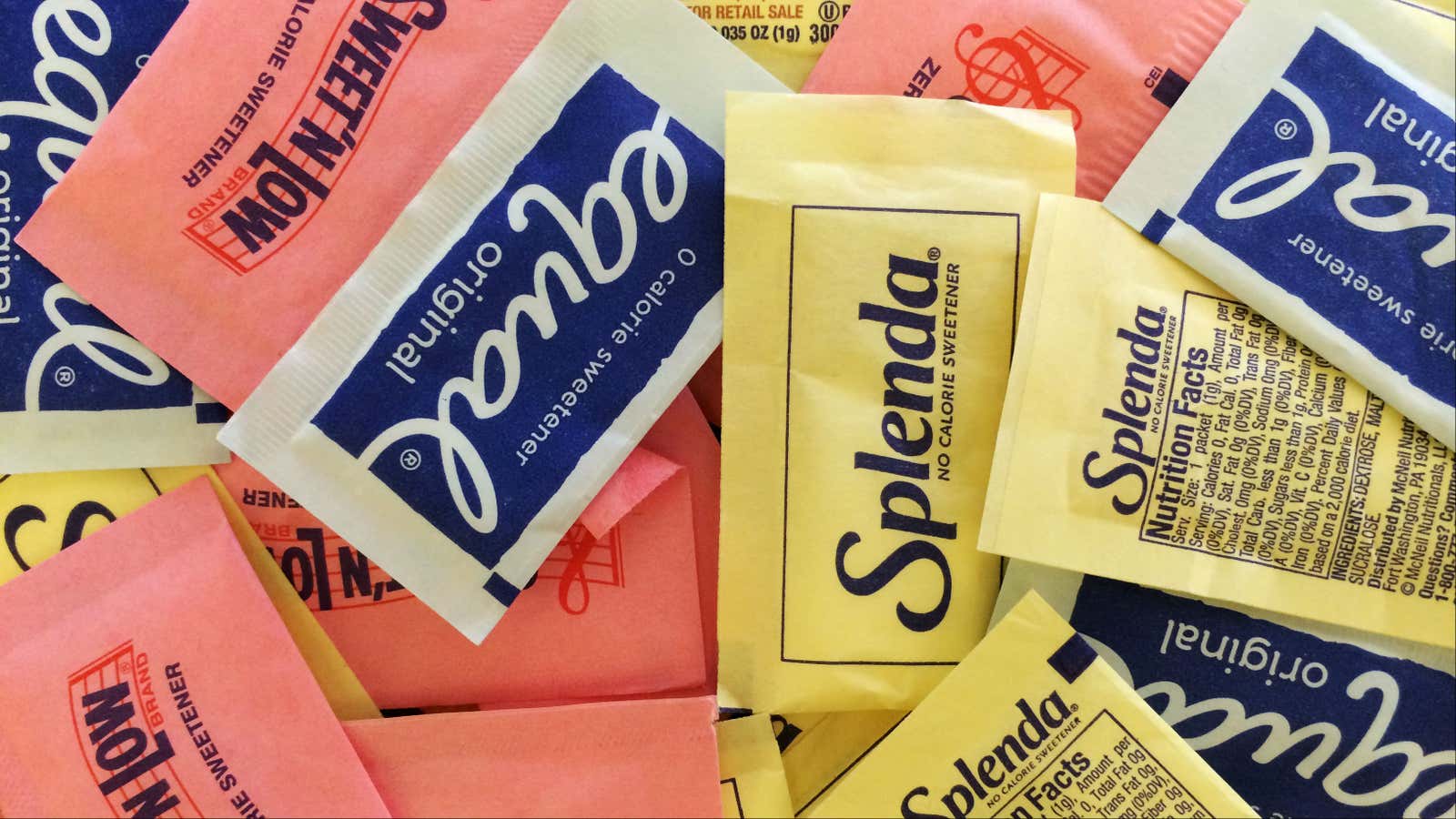In the world of nutrition, there’s one question that comes up over and over again: Are artificial sweeteners like Splenda, Equal, and Sweet n’ Low actually better for you than sugar?
Intuitively, it seems the answer should be “yes”: Sugar is calorie-dense, and contributes to weight gain and all of the potential health complications—like diabetes and heart disease—that arise with it. The World Health Organization has gone so far as to recommend that beverages with added sugar should be taxed as a way of curbing global obesity rates.
Broadly speaking, fake sugars work by tricking our taste buds into thinking that they’ve detected sugar, but they’re made out of chemicals that our bodies can’t break down, so we get no weight gain-inducing calories (or any nutritional value) from them.
But so far, there hasn’t been any credible scientific evidence showing subbing out sugar for an artificial sweetener is actually good for losing or keeping weight off. In a review published Monday (July 17), Canadian researchers analyzed (paywall) the results of 37 studies comparing the health outcomes of people who consumed real sugar against those who consumed only artificial sweeteners.
“There is no clear benefit for weight loss, and there’s a potential association with increased weight gain, diabetes and other negative cardiovascular outcomes,” Meghan Azad a nutrition scientist at the University of Manitoba in Canada, told NPR.
In total, the researchers looked at results from roughly 407,000 people participating in seven randomized controlled studies and 30 nonrandomized observational studies. None of the randomized trials showed that artificial sweeteners helped anyone lose weight; conversely, participants in some of the observational studies who ate fake sugars actually gained a little bit of weight, and were about 14% more likely overall to develop type 2 diabetes. That said, with these observational studies it was impossible for researchers to find a causal link between fake sugars and any health outcomes, and the researchers noticed that the majority of studies published on the subject were done on people who ate lots of fake sugars; not many looked at people consuming the sorts of amounts more typical of an average person.
Scientists have raised concerns about artificial sweeteners in the past. In 2005, sucralose, the sweetener found in Splenda, came under fire after it was shown to slightly mutate (paywall) the genes of mice in a lab. Since then, every year it seems a study or two comes out noting potential issues about the ways our bodies process artificial sweeteners without calories. In 2012, for example, there was one (paywall) showing when people ate artificial sweeteners with carb-heavy meals, their bodies produced more insulin than needed, which has been connected to type 2 diabetes. Although none of these sweeteners have been deemed dangerous enough to be taken off the market, researchers still don’t know all the ways they could be affecting us.
These concerns are especially warranted as artificial sweeteners become more abundant in the food we eat. The size of the artificial sweetener market is growing, and expected to reach $2 billion globally by 2022 according to an industry analysis from March of this year. In the US, 40% of adults and 15% of children consume (paywall) synthetic sweeteners, sometimes unknowingly when they show up in products that advertise themselves as low-calorie.
